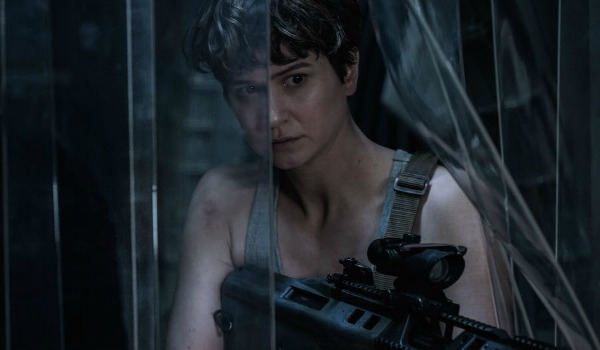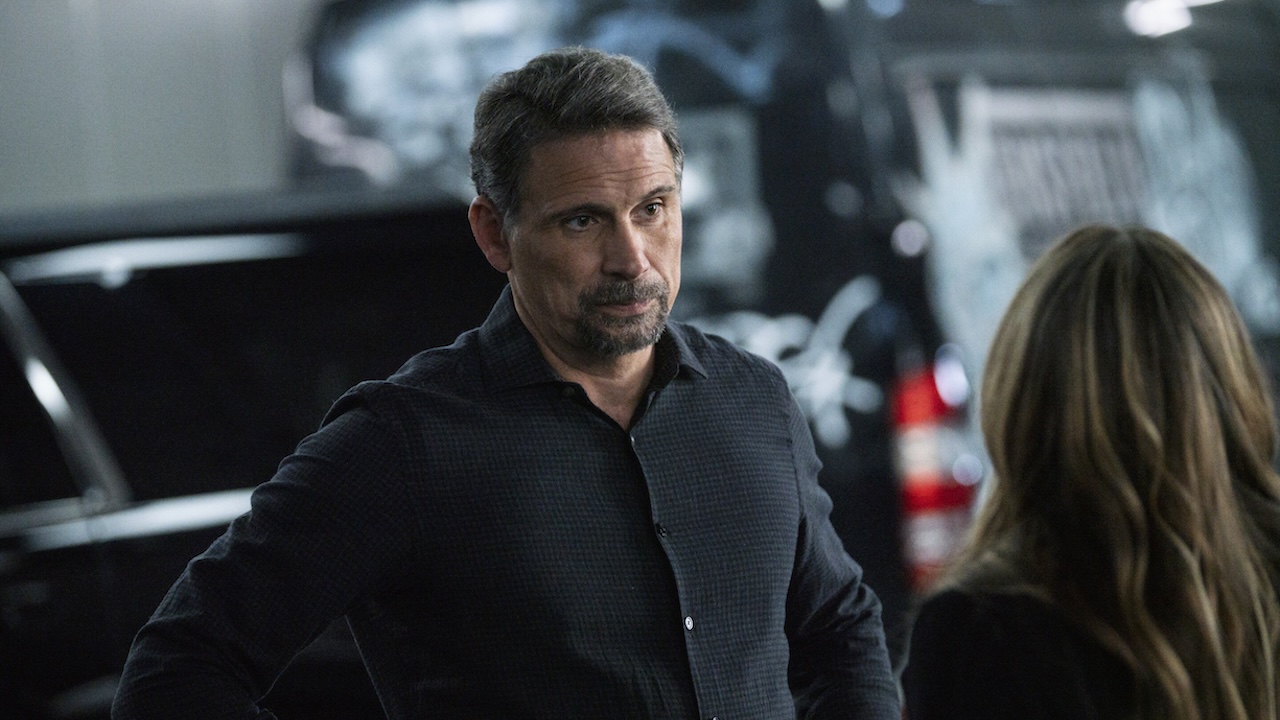For the better part of an hour, Alien: Covenant looks as though it's going to be the startling return to form for the franchise that everyone had hoped it could be. While Prometheus struggled to balance its philosophical pursuits with its blockbuster requirements, Sir Ridley Scott goes back to basics with Alien: Covenant, putting the former to one side as he elegantly establishes this new film's footing and its moody and chilling aesthetic.
Unfortunately, though, it can't maintain this momentum, and while there's enough in the film to call it a success, and some truly terrifying and bloody moments that rank right up there with the franchise's pinnacle, there also are some abundant flaws that leave you knowing Alien: Covenant could have been so much better.
The titular Covenant is actually a colony ship bound for a remote planet on the distant side of the galaxy, which is being attended to by Walter (Michael Fassbender), an android that's an update on Prometheus' David, while the crew are in hibernation. However an accident part way through the trip doesn't just cause the crew to wake up, but for some of them to perish in their sleeping pods, too.
With seven years of their journey still to go, and the members of the Covenant obviously apprehensive about returning to their chambers, they're provided an apparent lifeline when they intercept a rescue beacon from an obscure planet that's just a few weeks away and is also inhabitable. Once there, some of the crew head down to see if it's actually suitable for them to colonize, only to instead discover that it doesn't possess any living creatures at all, except for the franchise's legendary monsters and David (Fassbender), who has somehow survived on the planet for around a decade.
Sir Ridley Scott almost creepily sets up the above, seemingly taking joy in the random circumstances that ultimately leads to Daniels (Katherine Waterston), Christopher (Billy Crudup), Karine (Carmen Ejogo), Faris (Amy Seimetz), and several other members of the Covenant setting foot on the planet. While it's all understated, you can feel Scott gently etching up the tension in an expert fashion, plus, at the same time, he's also able to depict a brutal, fiery death sequence as a result of the disaster that jolts the crew awake, and tease the conflicts and relationships that will be exploited once the ghastly creatures start to wreak havoc.
The first sequence of them doing just that -- which sees the aliens gaining access to oblivious members of the Covenant as just specks of DNA that climb through their orifices, only to then quickly manifest and escape through dismembering their host -- is as gory, enthralling, and nightmarish a sequence as you're likely to see all year. Scott goes hell for leather making sure you see the blood and the gore, and throws enough of it at the screen to make you wince and recoil whenever the Aliens are again nearby. It's handled with such aplomb, and leaves the situation so dire, that you're genuinely hooked and nervous about where the film could head yet.
It's just a shame then that Alien: Covenant doesn't fully take advantage of this terror. Instead, it deviates into a more relaxed state, as it leans heavier on the sci-fi and explores the evolution of the Xenomorph, something that it admittedly does in an enlightening and cogent fashion. This deceleration coincides with the emergence of David, and while there are still some moments that genuinely take you aback, including a face-hugging sequence that is particularly vindictive and sadistic, Alien: Covenant's latter set-pieces don't satisfyingly build to anything, and aren't as smooth as you might expect.
Your Daily Blend of Entertainment News
Unfortunately, the reason for this is that Ridley Scott's direction and Dariusz Wolski's cinematography aren't always conducive to these scenes. Obviously, Ridley Scott masterfully controls the rhythm, tempo, and haunting mood of the film, but when there's an abundance of movement you don't really feel the full thrust and impact of the violence. Frankly, at times, it's hard to see exactly what's going in the dank and barely lit surroundings, while Alien: Covenant also suffers badly from best-bits-in-the-trailer syndrome. You hold out hope that the movie can remedy this with its final action set piece, but even that lacks any imagination, and is sadly derivative and underwhelming. However Covenant's conclusion is slightly salvaged by its final moments, which do pack a punch.
Covenant is cast well, though. Katherine Waterston is more emotive, compelling, and dynamic than Noomi Rapace, while Danny McBride puts in a surprisingly dramatic and consistent turn, but you can't help but feel the cast is a little too bloated, as not enough of the characters have been shown for us to care when they actually start to get mowed down. As you'd expect, it's Michael Fassbender who once again steals the show in his dual roles as Walter and David. What we see is far from conventional, yet still always verges on eye-catching. The interactions between the two androids, whose disparate personalities are pitch-perfectly portrayed by the Irishman, are genuinely bizarre, in both a good and bad way. To go into too much detail might ruin your enjoyment, but it sways from amusing to theatrical to frankly ludicrous, sometimes to the point that you can't help but laugh and be slightly taken out of the film.
Yet, for all its imperfections, Alien: Covenant is a lively and captivating ride that's gruesome, chilling and traumatic, which makes it all the more disappointing that it stagnates. There's still enough in it to suggest that Sir Ridley Scott could hit the highs of the franchise's past with his two-planned sequels, though, especially as both Prometheus and Covenant have now provided the foundations for an arena that cinema's most terrifying monsters could do some truly horrifying things in.


